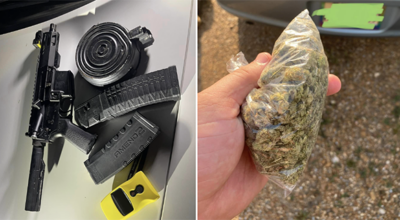Federal judge allows state to commence with execution of Mississippi death row inmate
Published 8:31 am Thursday, December 8, 2022
A federal judge has rejected a Mississippi death row inmate’s request to block the state from carrying out his execution while the courts decide a constitutional challenge to the drugs the state plans to use to put the inmate to death.
U.S. District Judge Henry Wingate wrote in his opinion Wednesday concerning the motion on behalf of some Mississippi death row inmates, including Thomas Edwin Loden Jr., who is facing a Dec. 14 execution date, recently set by the Mississippi Supreme Court.
Wingate denied Loden’s request.
“Loden contends that since he is a plaintiff in this underlying lawsuit challenging Mississippi’s lethal injection mode of execution, the same procedure Mississippi intends to use to put him to death, he should not be executed before a decision on the constitutionality is rendered,” Wingate wrote. “Should this court adopt that reasoning, Loden’s future execution date would be uncertain, but years away. If this court were to rule that the lethal injection mode is unconstitutional, Mississippi could still resort to his execution under one of three alternative modes of execution, which chosen procedure would surely be attacked in a new lawsuit.”
“Loden, however, cannot convincingly argue that his involvement in this 1983 lawsuit has somehow expanded his rights and provided him a shield against execution. He has exhausted all his state and federal appellate rights,” Wingate wrote.
Earlier this month in a court hearing, Wanda Farris of Fulton, the mother of the 16-year-old girl killed by Loden, said she has waited 22 years for justice for her daughter, Leesa Gray.
“She was a sweet Christian girl, loved the Lord, had a lot of life ahead of her,” Farris told reporters outside the courtroom.
Farris’ best friend, Sondra Pearce, said in court earlier this month she taught Leesa in kindergarten, and she didn’t like hearing the judge and attorneys discuss whether Loden might feel pain during an execution.
“Let’s talk about Leesa and the inhumane things he put her through,” Pearce said outside the courtroom.
Earlier this month, Wingate requested a sworn statement from Mississippi Corrections Commissioner Burl Cain about the state’s current stock of execution drugs.
Gerald Kucia, a Mississippi special assistant attorney general, told Wingate that none of the execution drugs currently in stock are expired. He said some expired execution drugs were recently destroyed by the Mississippi Bureau of Narcotics.
Attorneys for the Roderick & Solange MacArthur Justice Center sued the Mississippi prison system, saying the state’s lethal injection protocol is inhumane.
Jim Craig, a MacArthur Center attorney, said Monday that since 2019, only Alabama, Oklahoma, Mississippi and Tennessee have conducted executions using a three-drug protocol.
According to the Death Penalty Information Center, 27 states have the death penalty. Craig said a majority of death-penalty states and the federal government used a three-drug protocol in 2008, but the federal government and most of those states have since started using one drug.
“Mississippi also has no serious training of their staff before an execution takes place,” Craig said. He said the people who insert needles into a condemned inmate for the execution are not present during practice runs of the procedure.
Craig also pointed out that Alabama Gov. Kay Ivey last week sought a pause in executions. Ivey ordered a “top-to-bottom” review of the state’s capital punishment system after an unprecedented third failed lethal injection.
Kucia told Wingate that the U.S. Supreme Court has never blocked a method of execution.
“This court should not say that Mississippi’s method of carrying out executions is unconstitutional,” Kucia said.
Mississippi’s most recent execution was in November 2021 — its first in nine years. The Mississippi Department of Corrections revealed in court papers in July 2021 that it had acquired three drugs for the lethal injection protocol: midazolam, which is a sedative; vecuronium bromide, which paralyzes the muscles; and potassium chloride, which stops the heart. Cain said the drugs listed in the court records were the ones used for the execution that November. He would not say where the department obtained them.
Mississippi and several other states have had trouble finding drugs for lethal injections in recent years since pharmaceutical companies in the United States and Europe began blocking the use of their drugs for executions.
Loden joined four other Mississippi death row inmates in the federal lawsuit challenging the state’s lethal injection protocol. Mississippi revised the protocol to allow the use of midazolam if thiopental or pentobarbital cannot be obtained.
Wingate granted an injunction to prevent the state from using compounded pentobarbital or midazolam, but the 5th U.S. Circuit Court of Appeals reversed that ruling. That sent the case back to Wingate.
The Associated Press contributed to this report.






